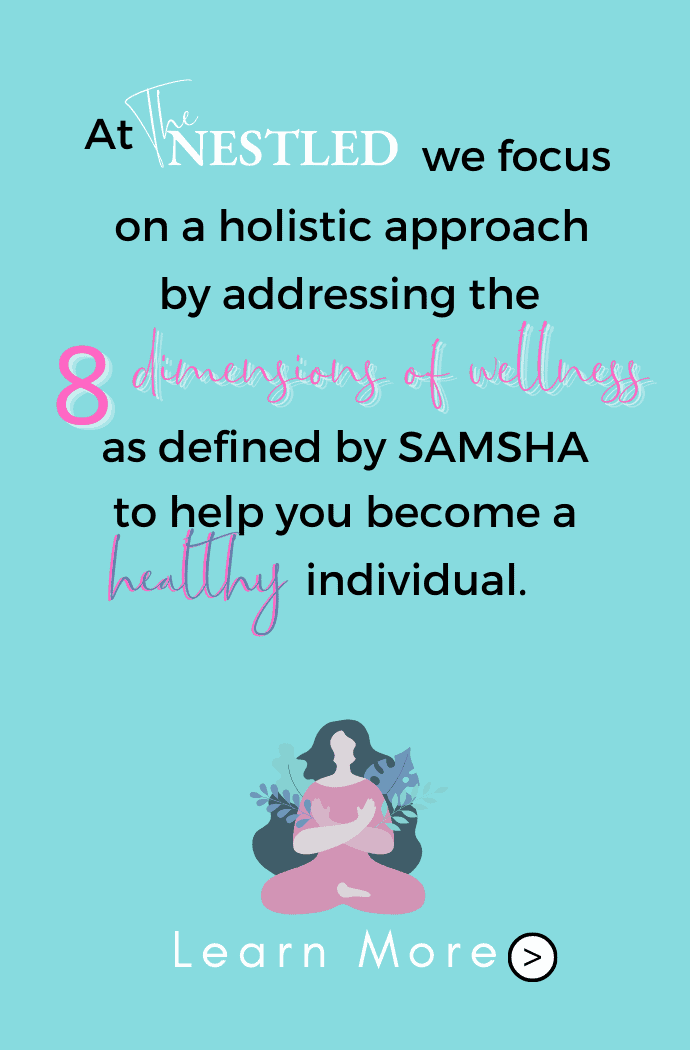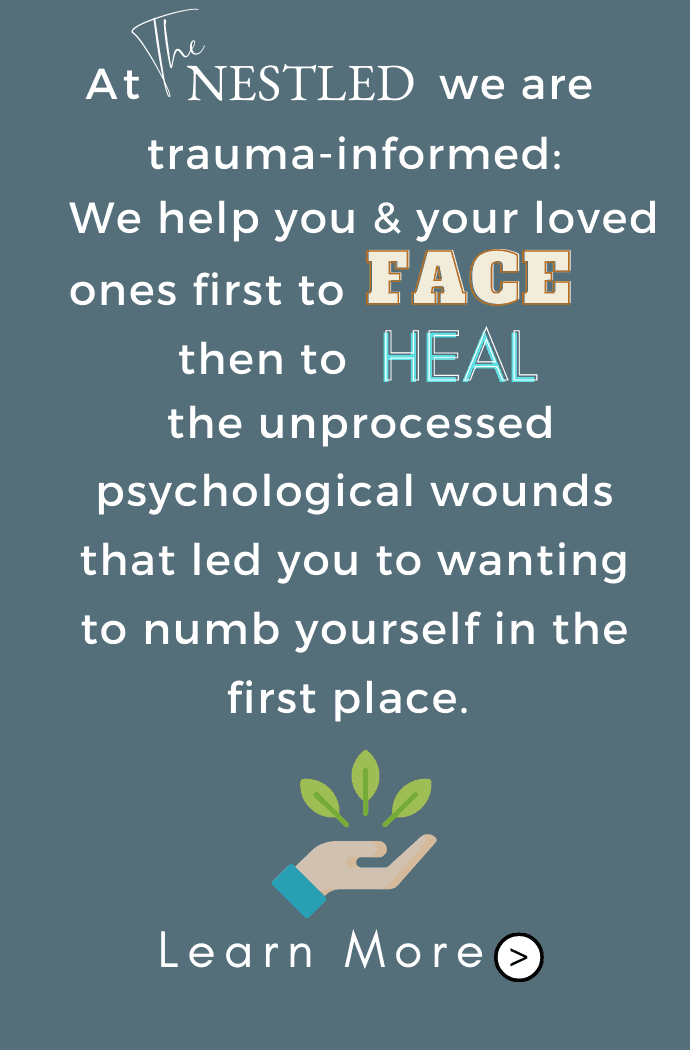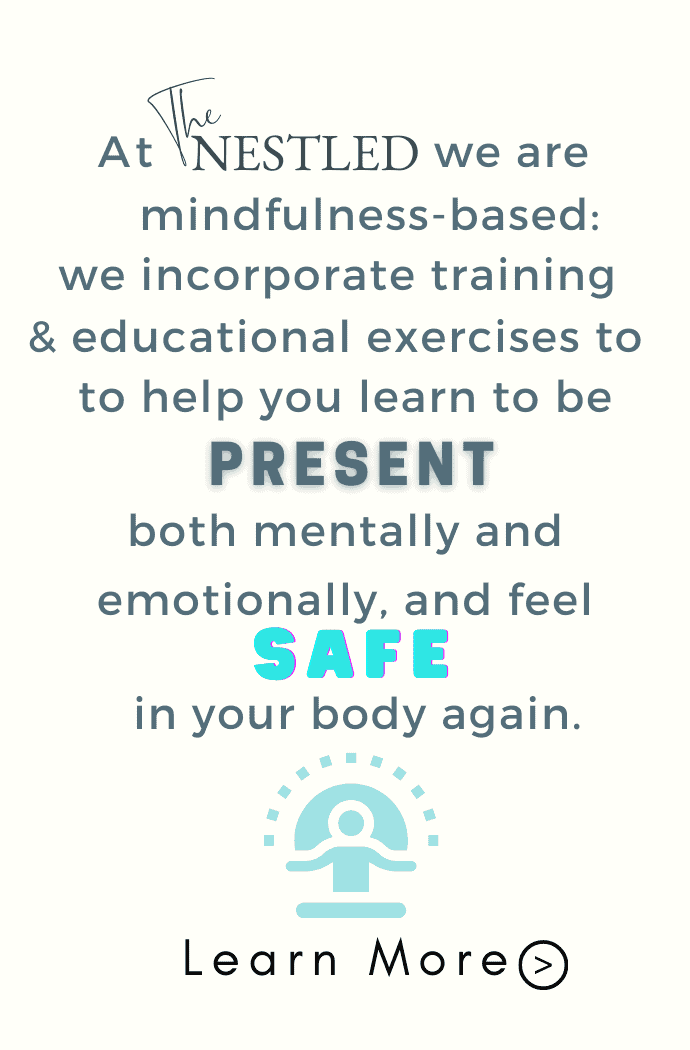In the heart of Las Vegas, a city known for its vibrant nightlife and endless entertainment, lies a silent struggle that many families face: addiction. Addressing a loved one’s addiction is never easy. The fear of pushing them away, the uncertainty of their reaction, and the weight of the topic itself can be overwhelming. At The Nestled, we understand these challenges intimately. Our commitment is not just to those battling addiction, but also to their families and friends who are seeking guidance on how to help. This article aims to shed light on the delicate process of approaching someone about their addiction, offering insights and strategies to make the conversation as constructive and compassionate as possible.

Understanding Addiction
Before diving into the conversation, it’s crucial to have a foundational understanding of addiction. Addiction is not a mere lack of willpower or a simple choice; it’s a complex disease that affects both the brain and behavior.
Misconceptions About Addiction:
Many believe that those with addiction can simply choose to stop using drugs or alcohol. However, this is far from the truth. The repeated use of addictive substances can change the brain’s structure and function, making it challenging to quit without proper support and treatment.
Psychological Aspects:
Addiction often stems from a combination of factors, including genetics, environment, and personal experiences. For many, substances become a way to cope with stress, trauma, or underlying mental health issues. Over time, the brain comes to rely on the substance, leading to increased cravings and consumption.
Physical Aspects:
With continued use, the body becomes accustomed to the presence of the substance. This leads to tolerance, where more of the substance is needed to achieve the same effect. Eventually, the body may become dependent, experiencing withdrawal symptoms without it.
Recognizing addiction as a multifaceted disease is the first step in approaching a loved one. With this understanding, we can approach the conversation with empathy, compassion, and a genuine desire to help.
Signs That Someone Might Be Struggling
Recognizing the signs of addiction can be the first step in helping a loved one. While each individual’s experience with addiction is unique, there are common indicators that might suggest someone is struggling:
Physical Signs:
- Sudden weight loss or gain.
- Bloodshot eyes or dilated pupils.
- Frequent nosebleeds (common with snorted drugs).
- Changes in appetite or sleep patterns.
- Unexplained injuries or accidents.
- Slurred speech or impaired coordination.
Emotional and Behavioral Signs:
- Increased secrecy or lying about activities.
- Withdrawal from family and friends.
- Sudden mood swings or increased irritability.
- Loss of interest in hobbies or activities once enjoyed.
- Financial difficulties or unexplained expenses.
- Neglecting responsibilities at work, school, or home.
Environmental Signs:
- Finding drug paraphernalia such as needles, pipes, or rolling papers.
- Empty alcohol bottles or prescription pill bottles.
- Frequenting places or associating with people known for drug use.
Awareness of these signs doesn’t necessarily confirm an addiction, but they can be red flags that warrant a deeper conversation.
Preparing for the Conversation
Approaching someone about their potential addiction is a delicate task. Preparation can make the difference between a productive conversation and a confrontational one.
Educate Yourself:
Before initiating the talk, familiarize yourself with addiction’s nuances. Resources like The Nestled’s website offer valuable insights into the nature of addiction and recovery.
Seek Guidance:
Consider reaching out to professionals or support groups who can offer advice on how to approach the conversation. They can provide perspective and share experiences that can guide your approach.
Setting the Environment:
Choose a calm, private, and neutral setting for the conversation. This ensures that the individual feels safe and is more likely to open up. Avoid places with distractions or potential triggers.
Plan Ahead:
Think about the main points you want to address. It might be helpful to write them down. Be prepared for a range of emotions, both from yourself and your loved one.
Remember, the goal is not to accuse or confront but to express concern and offer support. Your approach should be rooted in love, understanding, and a genuine desire to help.
Dos and Don’ts When Approaching Someone
Navigating the conversation about addiction requires sensitivity and understanding. Here are some guidelines to keep in mind:
Dos:
- Be Compassionate and Non-Judgmental: Approach the conversation with an open heart, understanding that addiction is a complex issue that doesn’t define the entirety of a person.
- Use “I” Statements: Express your concerns in a way that centers on your feelings and observations. For example, “I’ve noticed you’ve been distant lately and I’m worried,” rather than “You’ve changed.”
- Offer Support and Understanding: Make it clear that your intention is to help, not to blame. Offer to be there for them, whether it’s attending counseling sessions together or simply being a listening ear.
Don’ts:
- Avoid Confrontational or Accusatory Language: Phrases like “You’re ruining your life” or “You’re an addict” can put the person on the defensive and shut down the conversation.
- Don’t Minimize or Deny the Problem: It’s essential to acknowledge the severity of the situation without exaggerating or downplaying it.
- Avoid Making Ultimatums or Threats: While it’s crucial to set boundaries, presenting them as threats can push the individual further away.

The Importance of Listening
Once you’ve expressed your concerns, it’s vital to give your loved one space to share their feelings and perspective.
- Create a Safe Space: Ensure they know that they can speak openly without fear of judgment or retaliation.
- Avoid Interrupting: Let them share their thoughts fully. Sometimes, just the act of verbalizing their feelings can be therapeutic.
- Ask Open-Ended Questions: Instead of asking questions that can be answered with a simple ‘yes’ or ‘no’, try questions like “How do you feel about what’s been happening?” or “What can I do to support you?”
- Validate Their Feelings: Even if you don’t agree with everything they say, it’s essential to acknowledge their feelings as valid. Phrases like “I understand why you might feel that way” can be comforting.
Remember, this conversation is just the beginning. It’s an opportunity to open the lines of communication and start the journey towards healing together.
Offering Support and Solutions
Once the lines of communication are open, it’s essential to guide the conversation towards potential solutions and support. Here’s how you can help:
- Introduce Treatment Options: Discuss the various treatments available, from detoxification to therapy and rehabilitation. Highlight the success stories from The Nestled to illustrate the potential for recovery.
- Provide Resources: Share pamphlets, brochures, or online resources that delve deeper into addiction and recovery. The Nestled’s website, for instance, offers a wealth of information tailored to both individuals struggling with addiction and their families.
- Discuss Support Groups: Emphasize the importance of community in the recovery journey. Whether it’s groups for those battling addiction or for their families, these communities can provide invaluable insights, support, and understanding.
- Offer Personal Support: Reiterate your commitment to stand by them throughout their recovery journey. This could mean accompanying them to therapy sessions, helping them find a suitable treatment center, or simply being there to talk.
What If They’re Not Ready?
Acceptance is the first step to recovery, but not everyone is ready to take that step immediately. Here’s how to navigate the situation if your loved one isn’t prepared to seek help:
- Respect Their Decision: While it’s challenging to see a loved one continue down a harmful path, it’s essential to respect their autonomy. Pushing too hard can be counterproductive.
- Continue Offering Support: Just because they’re not ready now doesn’t mean they won’t be in the future. Let them know that your door is always open and that you’re there for them, no matter what.
- Seek Support for Yourself: Watching a loved one struggle with addiction can be emotionally draining. Consider joining a support group for families of addicts or seeking counseling to cope with your feelings.
- Stay Informed: Keep yourself updated about addiction and recovery. The more you know, the better equipped you’ll be to offer help when they’re ready.
Remember, recovery is a journey, and everyone moves at their own pace. Your continued love and support can make a world of difference, even if the results aren’t immediate.

Taking the First Step: A Beacon of Hope with The Nestled
The journey of addressing a loved one’s addiction is paved with challenges, emotions, and uncertainties. Yet, it’s a journey worth embarking upon, for the promise of recovery and the rekindling of relationships. At The Nestled, we’ve witnessed countless stories of transformation, of individuals reclaiming their lives from the clutches of addiction, and of families reuniting stronger than ever. Approaching someone about their addiction is not just about confronting the issue; it’s about extending a hand of hope, love, and support. It’s about letting them know that they’re not alone in this battle and that, together, a brighter future is possible.
If you or a loved one is grappling with addiction, don’t wait. Reach out to The Nestled today. Our compassionate team is ready to guide, support, and provide the necessary resources to embark on the path to recovery. Every moment is an opportunity for a new beginning. Let The Nestled be a part of your journey to healing and renewal.








